“In the event of a nuclear attack, there are no winners or losers. Everyone loses. The world must support Ukraine.” These words were spoken by Shigemitsu Tanaka, co-chair of the Japan Confederation of A- and H-Bomb Sufferers’ Organizations, often shortened to Nihon Hidankyō, which in 2024 received the Nobel Peace Prize for its efforts against nuclear weapons.
In Nagasaki, Ukrainian journalists – representatives of the National Union of Journalists of Ukraine (NUJU)- had the honor of speaking to a Japanese audience together with hibakusha (survivors of the atomic bombing) Shigemitsu Tanaka.
“I was a four-year-old boy when I saw a blinding white light. We lived six kilometers from the epicenter. My parents and brother died of cancer in the following years. I still feel guilty and afraid…,” said Mr. Tanaka.
It was a symbolic meeting – witnesses of the tragedy of 1945 and journalists from Ukraine, a country that today suffers from russian war crimes.
“We showed the Japanese photos from the front and from the front-line territories and Kyiv, destroyed homes after air strikes, people living under constant threat,” said NUJU President Sergiy Tomilenko, who heads the delegation. “We in Ukraine do not know when a new russian missile will fly in and ruin our day. But journalists must testify to the truth, even in bulletproof vests and helmets.”
Svitlana Karpenko, the editor of the front-line newspaper, Trudova Slava, from the town of Orikhiv, shared the experience of a small newsroom that remains almost the only source of news for the front-line community. She told how a visit to the atomic bombing museum in Nagasaki showed that it is important to write not only about the scale of the destruction, but also about the fate of specific people. The NUJU representatives also showed a documentary film made by the Union, Pages of Hope, about the Orikhiv newspaper and the importance of front-line Ukrainian newspapers in general.
A journalist from Zaporizhzhia, Olha Vakalo, testified to the terrible facts about the russian occupation of the Zaporizhzhia nuclear power plant, which the occupiers turned into a military base, disregarding the safety of all humanity.
Ukrainian journalists presented Mr. Tanaka with a bracelet in the colors of the Ukrainian flag, a symbol of friendship and a joint struggle for peace.
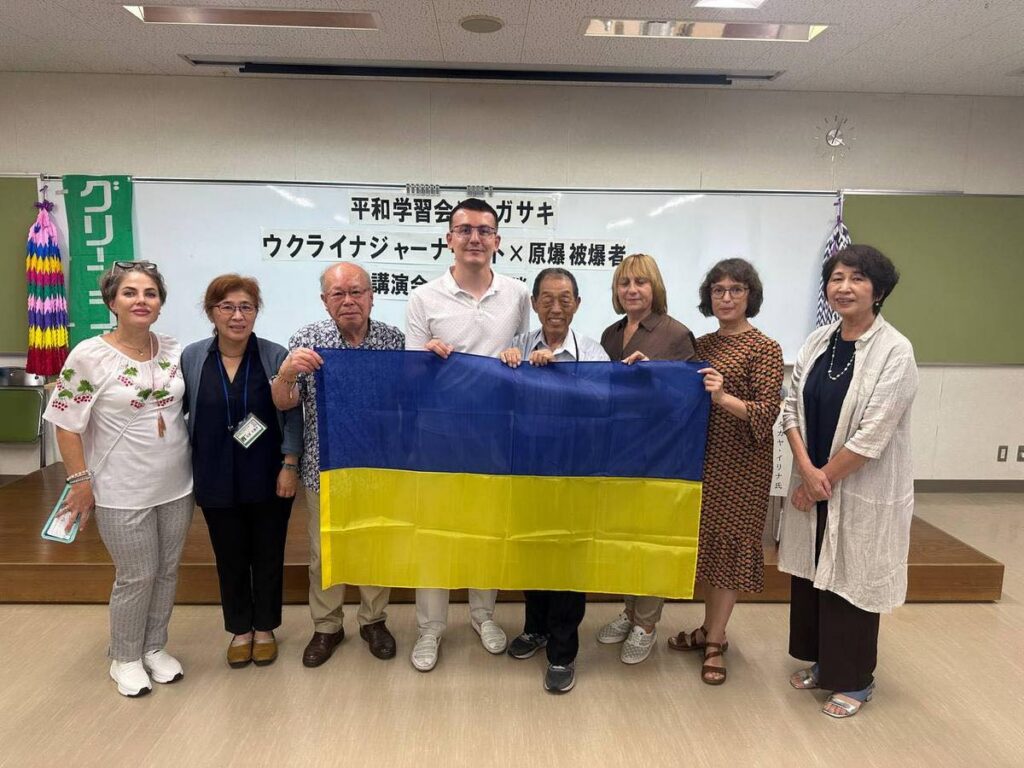
Ukraine today lives under the threat of a nuclear disaster – the Zaporizhzhia NPP occupied by the russians. This is not only a Ukrainian problem, but a global danger for all of civilization. Therefore, the dialogue between Ukrainian journalists and the Japanese hibakusha community is particularly important.
The NUJU is grateful to the Green Coop organization and the Future Generations Foundation for organizing the meeting and their long-term support of Ukrainian journalists. About a hundred Japanese people came to hear the truth from Ukraine – and this is another bridge of friendship between our peoples.
The Nihon Hidankyō organization received the 2024 Nobel Peace Prize.
This long-term struggle against nuclear weapons is embodied in the public testimonies of hibakusha, educational work with youth, international advocacy for the signing and implementation of the Treaty on the Prohibition of Nuclear Weapons (TPNW), and a reminder to the world that the tragedy of 1945 could be repeated on an even more terrible scale.
Together we say to the world: “A nuclear tragedy must not happen again!”
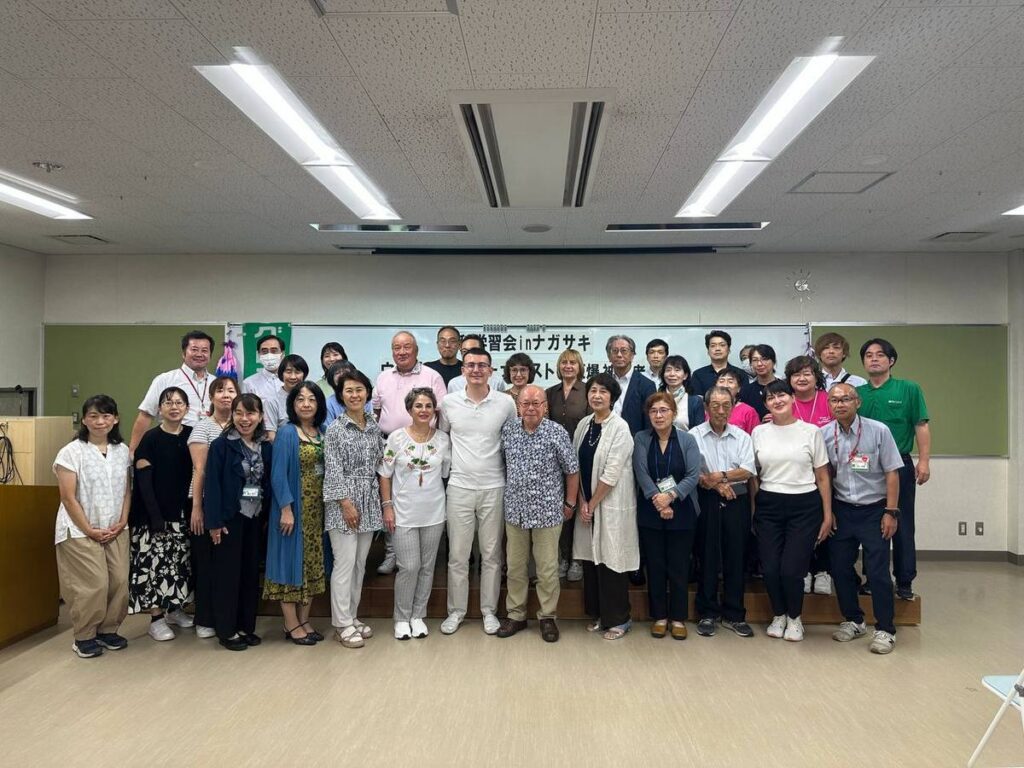
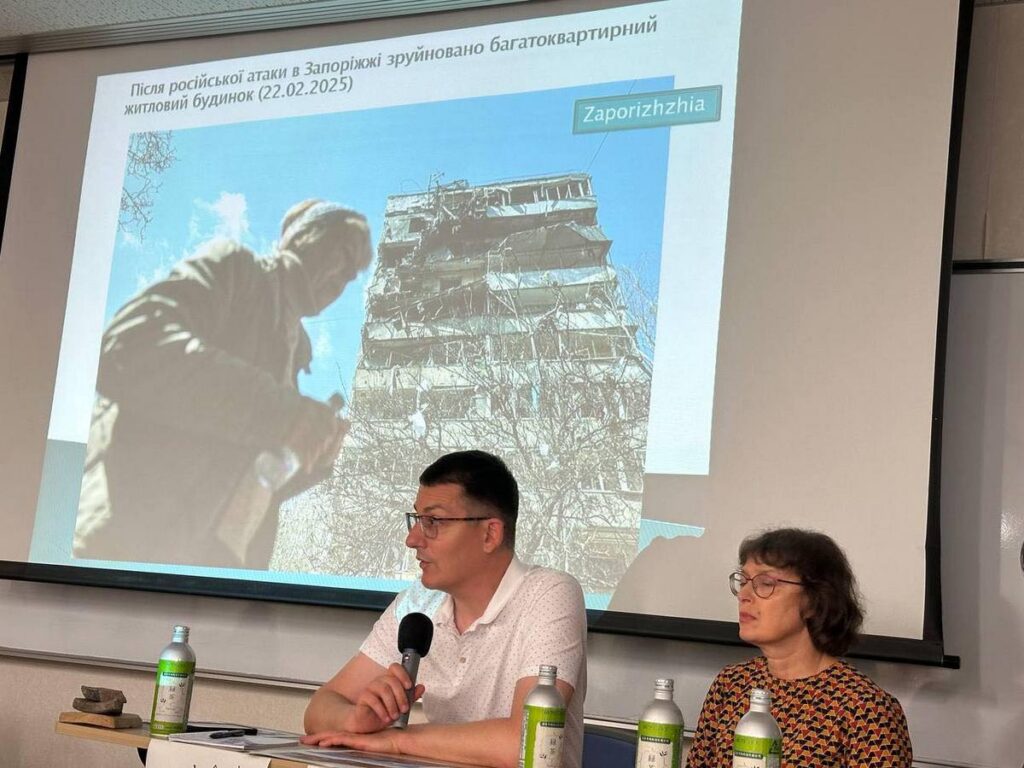
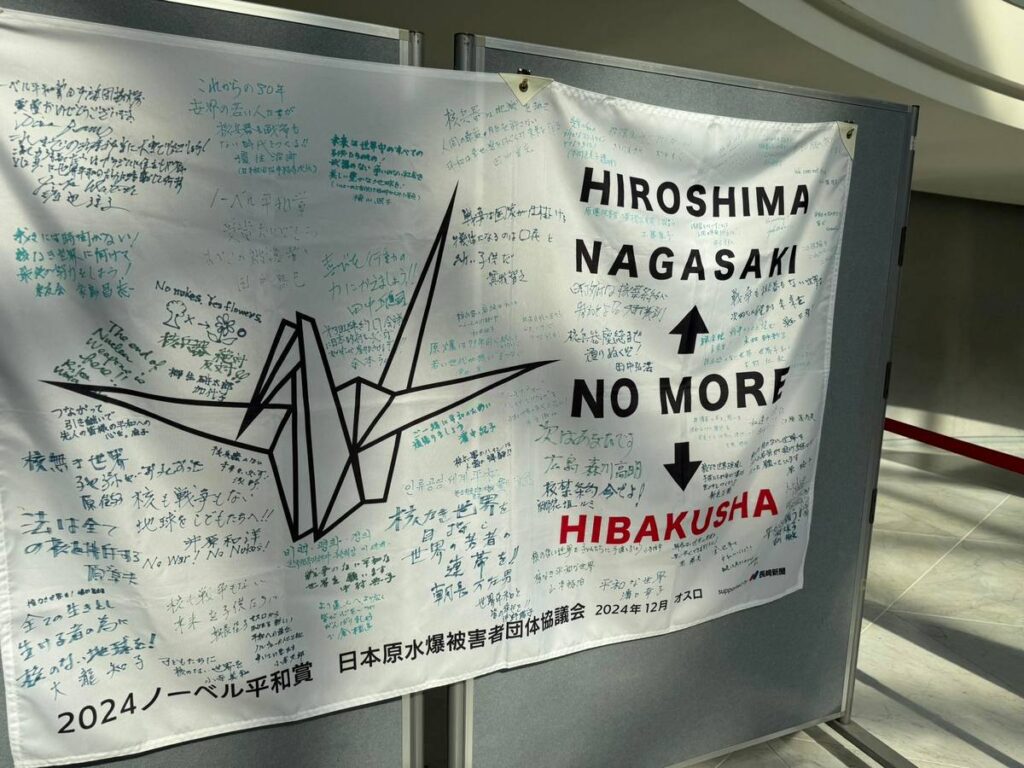
NUJU Information Service

 THE NATIONAL UNION OF
JOURNALISTS OF UKRAINE
THE NATIONAL UNION OF
JOURNALISTS OF UKRAINE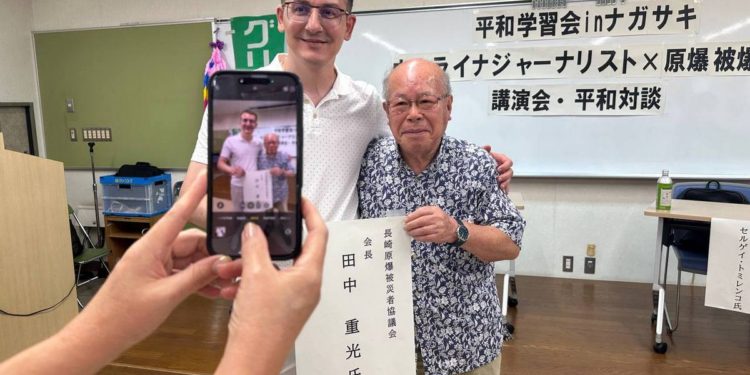
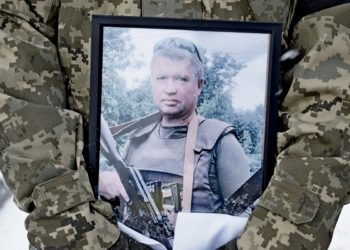

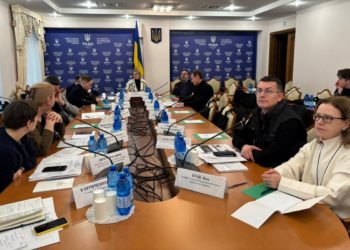












Discussion about this post